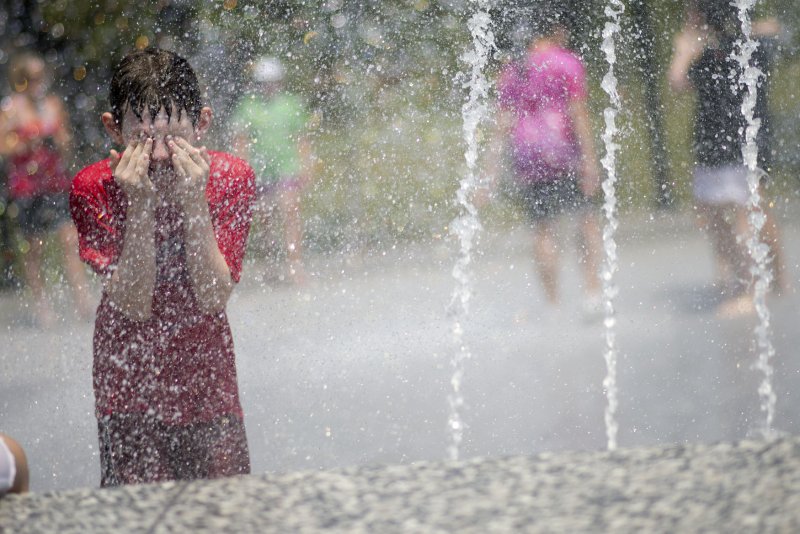A boy tries to beat the heat as he cools off in a fountain during a triple-digit heat wave in Washington, D.C. (File/UPI/Kevin Dietsch) |
License Photo
Climate change is strongly linked to human conflict, and even minor changes in temperature or rainfall can increase violence, according to researchers at the University of California, Berkeley and Princeton University.
Researchers conducted an analysis of studies across multiple fields, including climatology, archaeology, economics, political science and psychology, and found patterns of conflict linked to climate change worldwide.
"We collected 60 existing studies containing 45 different data sets and we re-analyzed their data and findings using a common statistical framework," said lead author Solomon Hsiang. "The results were striking."
"Examples include spikes in domestic violence in India and Australia; increased assaults and murders in the United States and Tanzania; ethnic violence in Europe and South Asia; land invasions in Brazil; police using force in the Netherlands; civil conflicts throughout the tropics; and even the collapse of Mayan and Chinese empires."
For the three types of conflict analyzed -- personal violence, intergroup violence, and institutional breakdown -- all three were affected by climate change, with the effect on intergroup violence most pronounced.
"We found that a 1 standard deviation shift towards hotter conditions causes the likelihood of personal violence to rise 4 percent and intergroup conflict to rise 14 percent,” said Marshall Burke, the study’s co-lead author.
The authors suggest that by 2050, with a global temperature increase of just 2 degrees Celsius, intergroup conflict could rise by more than 50 percent in some parts of the world.
While the findings, published in the journal Science, show that climate change increases conflict, the authors point out that climate is not the only or even a primary cause of conflict -- just that a heat will likely make it difficult to keep a cool head.















